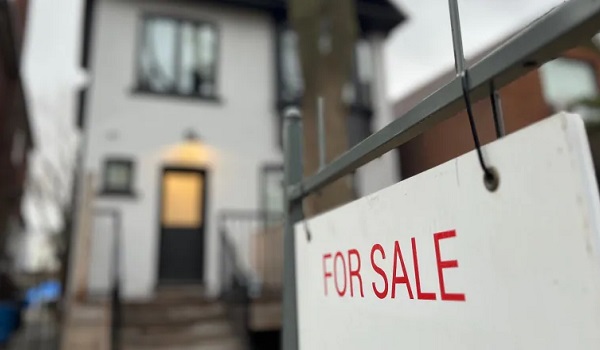Looming Trump’s tariff, recession fears will slow Toronto’s real estate market, experts say
Looming U.S. tariff threats are leading real estate experts to cast doubt on potential homebuyers north of the border jumping back into the market this year.
Even though U.S. President Donald Trump’s tariffs on Canada are now on pause for 30 days, the possibility of the tariffs coming into effect at any time has a psychological impact on buyers — and will likely lead to many buyers shelving or delaying their purchase plans.
The 25 per cent tariffs, which had been set to commence on Tuesday before a last-minute reprieve Monday afternoon, could push the country into a recession, cause thousands of Canadians to lose their jobs, and drive up inflation.
“All of this uncertainty means that the housing market is likely to slow even further,” said Victor Tran, Ratesdotca mortgage and real estate expert.
“Many would-be homebuyers will likely re-evaluate their purchasing timelines and ability to carry a large debt load in tough economic times. Not many will want to take on substantial debt with a potential recession on the horizon.”
After Canada announced retaliatory tariffs on American goods over the weekend, the 10-year Canadian government bond yield plummeted by roughly 15 basis points and the loonie weakened to levels not seen since 2003.
Because stock prices are so volatile, it could mean less money is readily available for those looking to cash in on their investments for their down payment, Tran added.
First-time homebuyers are the most vulnerable cohort and will tread with caution.
“For first-time homebuyers, especially those with the bare minimum requirements to qualify for a mortgage, buying now could put them into negative equity right off the bat if home prices drop even slightly,” Tran said. That’s because their mortgage is underwater, meaning they owe more on the home than it’s currently worth.
Toronto-area’s average home price has corrected since the February 2022 peak but is still 14.5 per cent higher than February 2020, just before the pandemic lockdowns took effect.
“Prices are still overvalued and have some room to come down,” said Tony Stillo, director of Canada Economics at Oxford Economics.
If the tariffs proceed and stay in place for several months, the significant rise in unemployment could lead to an increase in mortgage defaults, which would push home prices down, he said.
“There is still very much concern that we could see more distressed home sales,” he said.
Robert Kavcic, director, senior economist at BMO Capital Markets, said if the tariffs are put in place and the central bank has an aggressive rate-cut cycle “it’s not good for housing,” because it means the economy is flailing. It means that there’s an increase in unemployment with more distressed sales occurring.
Only once unemployment lowers and the economy picks up does the housing market improve.
“The cycle works out by us going through a recession, experiencing job loss to the point where the economy picks up again,” Kavcic said. “Once that happens and interest rates remain low, then we see housing come back.”
If Canadians are impacted by recessionary factors, such as job loss, that will lead to a drop in housing demand — and even rock-bottom interest rates “will do little to support demand in that scenario,” said Penelope Graham, mortgage expert at Ratehub.ca.
“However, if the federal government provides significant fiscal support to protect livelihoods, and the benchmark cost of borrowing falls below 2 per cent, there’s a possibility it could lead to an ultrahot housing market — a scenario that played out during the pandemic, when borrowers were driven by the psychological urgency of the lower-rate environment,” she said.
This article was first reported by The Star













